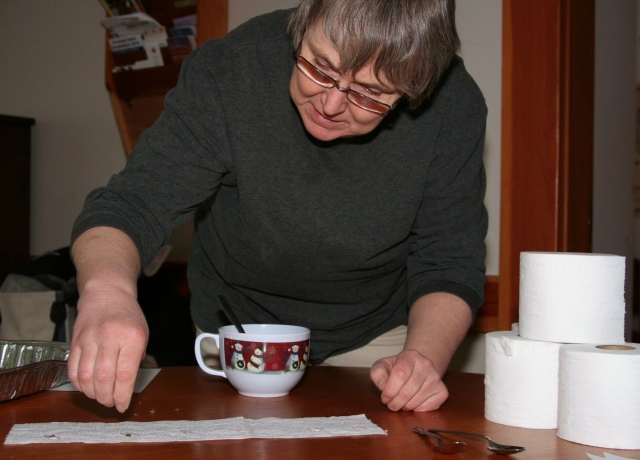Wriggly worms and seed library featured at annual Seedy Saturday event
Learn about how to do your own worm composting, how to contribute to local seed and food sustainability and hobnob with like-minded gardening enthusiasts at the annual Seedy Saturday Seed Share and Exchange in Grand Forks, Saturday, March 9.
This year’s event, which is hosted by the Grand Forks and Boundary Regional Agricultural Society (GFBRAS), and the Boundary Organic Producers, is opened from 10 a.m. to 3 p.m. at the Holy Trinity Anglican Church located at 7252 7th Street in Grand Forks.
Besides providing a place to exchange local seeds, buy local seeds and get information about becoming a grower for the Boundary Seed Bank Project, the seed share is also a place to learn new gardening skills.
“People need to remind themselves that seeds are something we can have a direct relationship with,” said Sheila Dobie, director for the Boundary Seed Bank Project. The local seed supply is part of the local food supply and they need to participate in that.”
Like last year, Lorraine Dick, coordinator of the community garden in Grand Forks, will be on hand to teach gardening techniques. Last year she demonstrated how to make your own seed tapes with toilet paper. This year she’ll be demonstrating vermiculture – or the use of worms to create compost.
The new seed library, which will be contained at the Grand Forks and District Public Library will also be highlighted at this year’s gathering. The seed library will essentially be a collection of seeds free to anyone who wants them and it is also an opportunity to continue collecting locally sourced seeds for the Boundary Seed Bank Project.
The Boundary Seed Bank Project will be they’re looking for people who would like to help save seeds to help with local food security projects, said Dobie.
“People will be there to talk about saving seeds,” said Dobie. “Anyone interested with being a seed custodian and how to become one can come talk about it.”
She also hopes to have a regional seed grower from Creston at this year’s event, which will further diversify the local seed selections.
Funding for the Seedy Saturday Seed Share and Exchange in Grand Forkswas provided by The Bauta Family Initiative on Canadian Seed Security, a project of USC Canada delivered in partnership with Seeds of Diversity Canada and supported by The W. Garfield Weston Foundation. For more information visit www.usc-canada.org and www.seeds.ca.
If you are bringing in seeds to exchange, please make sure the seeds are packaged and labeled with the name and date the seeds were harvested.
Seedy Saturday movement began 23 years ago
The concept of Seedy Saturdays or seed exchanges began in Canada in the late 1980s. The first Seedy Saturday event was held in Vancouver on February 14, 1989.
The movement was established to preserve heritage varieties of vegetables, fruits, flowers and grains that were nearly impossible to find at that time but are now more common thanks to the movement. Saving heritage seeds increases the genetic diversity of our foods and avoids the extinction of those varieties.
Seeds should be open-pollinated, which means they can germinate on their own. Today’s commercial seeds are often treated so they can’t reproduce and therefore forces the gardener to buy more seeds the following year.
To view our original story about the Seed Library visit:
https://boundarysentinel.com/news/library-soon-be-source-seeds-not-just-books-22483#.US-RFanJDFI






















